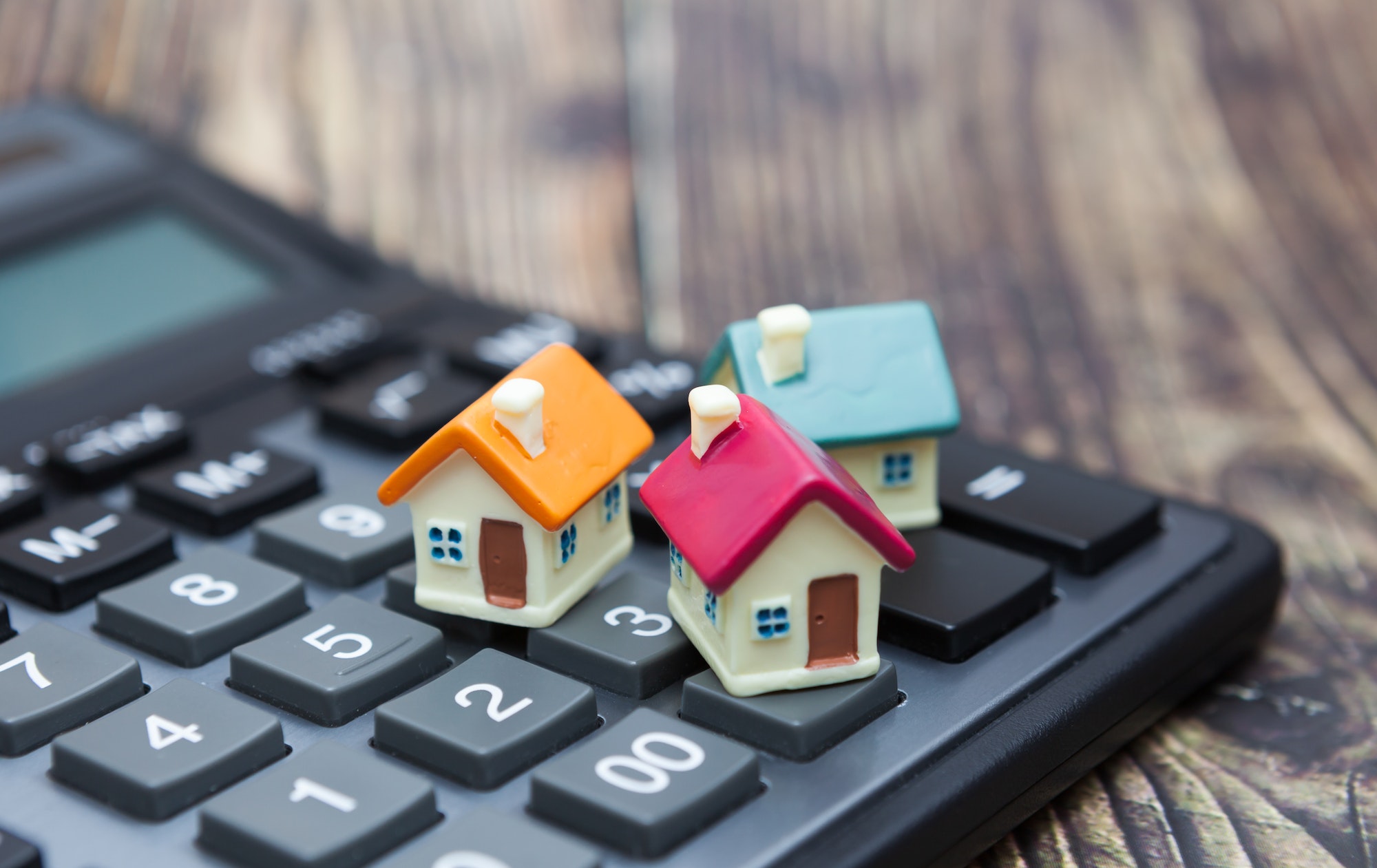Mortgages are loans used to purchase or maintain a home, plot of land, or other real estate, with the property serving as collateral for the loan. The borrower agrees to pay the lender over time, typically in a series of regular payments divided into principal and interest. Mortgages come in various forms, including fixed-rate and adjustable-rate loans, and are available from different lenders with varying requirements such as minimum credit scores and down payments.
Recent trends in the mortgage industry have seen a decline in application volumes, primarily due to the increase in mortgage rates. This increase has affected both new home purchases and refinancing activities, making it more expensive for potential homebuyers to enter the market. For example, even a small increase in the interest rate can translate into a substantial increase in the monthly repayment amount, affecting overall affordability.
In 2024, homebuyers can expect high home prices and slightly lower mortgage rates later in the year. The average home value in the U.S. was $363,438 in June, up 3.8% year over year, and the average 30-year mortgage rate was 6.92%. Experts predict that mortgage rates will drop this year, improving affordability for borrowers, but this could also lead to increased demand and higher home prices.
Understanding the different types of mortgages is crucial for homebuyers. Conventional mortgages, government-backed loans (such as FHA, VA, and USDA loans), jumbo loans, fixed-rate loans, and adjustable-rate loans are among the main types available. Each type has its own benefits and requirements, such as credit scores and down payments, and choosing the right one depends on the borrower’s financial situation and long-term housing plans.
Navigating the Mortgage Landscape: Choosing the Right Loan for Your $70,000 Income
When it comes to purchasing a home, selecting the right mortgage is crucial, especially for individuals with a specific income, such as $70,000 per year. The mortgage market offers a variety of loan options, each designed to cater to different financial situations and needs. From fixed-rate and adjustable-rate mortgages to government-backed loans like FHA, VA, and USDA mortgages, and specialized options such as jumbo loans and doctor mortgages, the choices can be overwhelming.
However, choosing wisely is essential to ensure that your mortgage payments align with your income and financial goals. For someone making $70,000 a year, understanding the nuances of each mortgage type and how they impact monthly payments, interest rates, and overall affordability is key to making an informed decision that supports long-term financial stability.
Mortgages are financial instruments that allow individuals to purchase real estate by borrowing money from a lender and paying it back over a specific period. There are several types of mortgages, each catering to different needs and financial situations. Understanding these types can help homebuyers choose the best option for their circumstances.
Types of Mortgages
Fixed-Rate Mortgages
These mortgages have an interest rate that remains constant throughout the loan term, ensuring predictable monthly payments.
- Benefits: Stability and predictability in monthly payments, protection from rising interest rates.
- Drawbacks: May have higher interest rates than adjustable-rate mortgages, and refinancing is required to take advantage of lower interest rates.
Adjustable-Rate Mortgages (ARMs)
The interest rate can change periodically based on market conditions.
- Benefits: Often starts with a lower interest rate than fixed-rate mortgages, potentially lower monthly payments initially.
- Drawbacks: Risk of increased monthly payments if interest rates rise, less predictability.
Conventional Mortgages
Not insured or guaranteed by the federal government, offered by private lenders.
- Benefits: Can offer better interest rates for borrowers with good credit, flexible terms.
- Drawbacks: Typically requires a higher down payment, stricter credit score requirements.
Jumbo Loans
Loans that exceed the maximum limits set by Fannie Mae and Freddie Mac.
- Benefits: Allows for the purchase of higher-priced homes.
- Drawbacks: Higher interest rates, stricter qualification criteria.
FHA Loans
Insured by the Federal Housing Administration, designed for low-to-moderate-income borrowers.
- Benefits: Lower down payment requirements (as low as 3.5%), more lenient credit score requirements.
- Drawbacks: Requires mortgage insurance premiums, which can increase the cost of the loan.
VA Loans
Guaranteed by the Department of Veterans Affairs, available to veterans, active-duty military personnel, and surviving spouses.
- Benefits: No down payment requirement, lower interest rates, no mortgage insurance needed.
- Drawbacks: Limited to eligible veterans and their families, funding fee required.
USDA Loans
Offered by the U.S. Department of Agriculture for borrowers purchasing homes in rural areas.
- Benefits: No down payment requirement, lower interest rates, no mortgage insurance needed.
- Drawbacks: Limited to rural areas, income and property value limits.
Assumable Mortgages
Can be transferred from the seller to the buyer, maintaining the original loan terms.
- Benefits: Can offer lower interest rates and lower closing costs.
- Drawbacks: Requires lender approval, not all mortgages are assumable.
Reverse Mortgages
Allows homeowners to borrow money using the equity in their home, with no monthly payments required.
- Benefits: Provides cash flow for seniors, no monthly payments.
- Drawbacks: Accumulates interest over time, reduces equity in the home.
Balloon Mortgages
Features a large payment due at the end of the loan term.
- Benefits: Lower monthly payments initially.
- Drawbacks: Risk of not being able to afford the balloon payment, potential for higher interest rates.
Doctor Mortgages
Designed for medical professionals, offering favorable terms.
- Benefits: Higher loan limits, lower or no down payment requirements.
- Drawbacks: Limited to medical professionals, may have higher interest rates.
Comparison Table
| Mortgage Type | Interest Rate | Down Payment | Credit Score | Benefits | Drawbacks |
|---|---|---|---|---|---|
| Fixed-Rate | Constant | Varies | 620+ | Predictable payments | Higher interest rates |
| Adjustable-Rate | Variable | Varies | 620+ | Lower initial rates | Risk of rate increases |
| Conventional | Varies | 3%+ | 620+ | Better interest rates | Higher down payment |
| Jumbo | Higher | 10%+ | 700+ | Higher loan limits | Stricter criteria |
| FHA | Varies | 3.5%+ | 500+ | Lower down payment | Mortgage insurance required |
| VA | Lower | 0% | Varies | No down payment | Limited eligibility |
| USDA | Lower | 0% | Varies | No down payment | Rural area restriction |
| Assumable | Varies | Varies | Varies | Lower interest rates | Lender approval required |
| Reverse | Varies | N/A | Varies | No monthly payments | Accumulates interest |
| Balloon | Varies | Varies | Varies | Lower monthly payments | Risk of balloon payment |
| Doctor | Varies | Lower/None | Varies | Higher loan limits | Limited to medical professionals |
Choosing the right mortgage involves considering your financial situation, long-term plans, and the specific benefits and drawbacks of each mortgage type. It’s essential to consult with financial advisors and compare offers from different lenders to find the best fit for your needs.
I Make $70,000 a Year, How Much House Can I Afford?
The most popular type of mortgage in the US is a conventional, fixed-rate conforming loan. This type of mortgage is not backed by a government agency such as the FHA and meets loan limits and other requirements to be purchased by Fannie Mae or Freddie Mac.
Let’s simulate a scenario for a $70,000 income and determine the maximum house price that can be afforded with a fixed-rate mortgage.
Assumptions:
- Income: $70,000 per year
- Monthly income: $5,833
- Credit score: 720 (good credit)
- Down payment: 20% (to avoid PMI)
- Mortgage term: 30 years
- Interest rate: 6.510% (current average 30-year fixed-rate mortgage rate)
- Property taxes: 1.25% of the home’s value per year
- Homeowners insurance: $800 per year
- Maintenance and repairs: 1% of the home’s value per year
Using the 28/36 rule, we can calculate the maximum monthly housing payment:
- 28% of monthly income: $1,633
- 36% of monthly income: $2,100
To be conservative, let’s use the 28% rule to determine the maximum monthly housing payment.
Next, we’ll calculate the maximum house price that can be afforded based on the following costs:
- Mortgage payment (P&I)
- Property taxes
- Homeowners insurance
- Maintenance and repairs
Using a mortgage calculator, we can determine the maximum mortgage amount that can be borrowed:
- Maximum monthly housing payment: $1,633
- Interest rate: 6.510%
- Mortgage term: 30 years
- Maximum mortgage amount: approximately $270,000
Now, let’s calculate the maximum house price that can be afforded:
- Maximum mortgage amount: $270,000
- Down payment: 20% ($54,000)
- Maximum house price: approximately $324,000
However, we need to consider other costs associated with homeownership, such as property taxes, homeowners insurance, and maintenance and repairs. Let’s estimate these costs:
- Property taxes: 1.25% of the home’s value per year (approximately $4,050 per year)
- Homeowners insurance: $800 per year
- Maintenance and repairs: 1% of the home’s value per year (approximately $3,240 per year)
These costs will add up to approximately $8,090 per year, or about $673 per month. To be conservative, let’s subtract this amount from the maximum monthly housing payment:
- Maximum monthly housing payment: $1,633
- Other costs: $673
- Adjusted maximum monthly housing payment: $960
Using the adjusted maximum monthly housing payment, we can recalculate the maximum mortgage amount:
- Adjusted maximum monthly housing payment: $960
- Interest rate: 6.510%
- Mortgage term: 30 years
- Maximum mortgage amount: approximately $190,000
Finally, let’s calculate the maximum house price that can be afforded:
- Maximum mortgage amount: $190,000
- Down payment: 20% ($38,000)
- Maximum house price: approximately $228,000
Based on this simulation, the maximum house price that can be afforded with a $70,000 income and a fixed-rate mortgage is approximately $228,000. However, this amount may vary depending on individual circumstances and other factors that affect affordability.
In conclusion, determining how much house you can afford on a $70,000 salary involves a careful consideration of various factors, including your down payment, existing debts, mortgage interest rate, and where you live. By understanding the different types of mortgages available and their respective benefits and drawbacks, you can make an informed decision that aligns with your financial situation and long-term goals.
Remember, buying a house is a significant investment, and it’s essential to approach it with a clear understanding of all the costs involved, from the mortgage payments to property taxes, homeowners insurance, and maintenance and repairs. By taking the time to research, plan, and budget, you can ensure that your dream of homeownership becomes a reality without compromising your financial stability.
As you navigate the mortgage landscape, keep in mind that the right mortgage for you will depend on your individual circumstances. Whether you opt for a fixed-rate mortgage, an adjustable-rate mortgage, or a government-backed loan, the key is to choose a mortgage that fits within your budget and supports your long-term financial health. With careful planning and consideration, you can find the perfect home that meets your needs and enhances your quality of life.
Discover more from Futurist Architecture
Subscribe to get the latest posts sent to your email.



